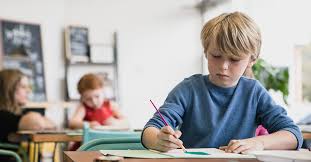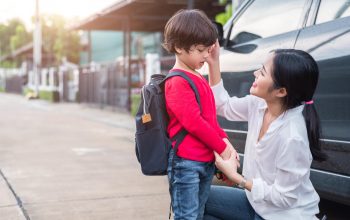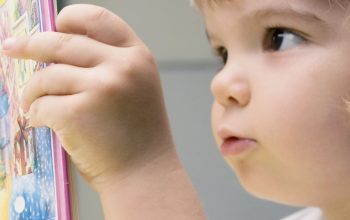Assisting Talented Students with Cognitive Impairments
Not every gifted child does well in school; some seem to find academic pursuits frustrating or boring, despite the fact that these same youngsters will gladly put in a lot of work to engage in challenging extracurricular activities and display a great deal of creative potential.
When faced with the aforementioned situation, many parents and educators are quick to label it as a behavioral problem, but in actuality, many of these kids live in a strange paradox where, although they are undoubtedly gifted, they also struggle academically due to one or more learning disabilities. Many people refer to these kids as "twice exceptional."
Since it is assumed that giftedness and learning disabilities are at opposite ends of the cognitive spectrum, these children often go undiagnosed for years. In fact, in some places, funding regulations limit identification and assistance to either learning disabilities or giftedness, never both. Comparably, failing to meet expectations in one area can be sufficient to exclude a child from being considered gifted (independent of other talents), while failing to meet expectations in another area frequently prevents a child from receiving a learning disability diagnosis.
Naturally, this is incompatible with our current understanding of the human brain and how it learns, even though professionals are still at odds over precisely defining giftedness, learning impairments, and their relationships. It is becoming more and more clear that kids might be exceptionally intelligent and yet struggle with a particular problem, and that even exceptionally brilliant kids can find it challenging to stay at their present grade level on a regular basis. Either way, it happens far too often that these kids fall in the gaps and don't get the support they require to realize their full potential.
Recognizing Talented and Learning-Disabled Children
Three categories often comprise gifted and learning impaired children: 1) Individuals with mild learning difficulties who are officially recognized as gifted; 2) "Average" achievers whose typical performance conceals their learning disabilities; and 3) Individuals with both a diagnosed learning disability and giftedness.
Group One: Gifted individuals with mild learning difficulties who receive formal identification.
These kids' exceptional success levels and/or IQs have led to their official designation as gifted. However, differences between their IQ and their academic achievement start to show as they become older and the work assigned in school gets more difficult and complex. These kids might have exceptional reading or speaking skills, but they might have trouble with spelling or handwriting at an age-appropriate level. They might do exceptionally well on exams, but they appear to have a lot of trouble managing big projects or finishing homework assignments correctly and on time.
When these kids reach middle school, a lot of them are tired of hearing that they should "try harder," even though they are doing their best. As a result, anger, bitterness, and apathy frequently arise.
A child who appears open to learning but is struggling yet probably requires assistance in learning the requisite skills and is already fully—and painfully—aware of their necessity. As soon as these differences appear, such youngsters should be thoroughly evaluated for the presence of minor learning difficulties to avoid undue harm to their self-esteem and willingness to learn. After receiving a diagnosis, these kids can frequently improve their academic performance by using specialized learning strategies. Moreover, since they will comprehend the reasons behind their challenges, they are less likely to hold themselves responsible for their learning problems.
Group 2: "Average" achievers, who conceal their learning problems with their typical level of performance.
Children in group two frequently have learning problems or are brilliant but go unnoticed. They are making a great effort to stay on grade level throughout this entire time, using their exceptional intelligence to make up for the challenges their learning disabilities offer. These kids certainly have a "road to hell paved with good intentions," as their giftedness can conceal their difficulties and vice versa, putting them at serious risk of never receiving the support and acknowledgment they deserve.
Teachers will frequently need to keep an eye out for remarkable skills that only show out in certain circumstances or when they are nurtured by a particularly attentive teacher (typically one who takes a creative approach to learning) in order to recognize these youngsters.
To gain insight into a child's learning difficulties, we may suggest cognitive profile testing if neither giftedness nor learning disability were legally recognized.
Group 3: Individuals who are both gifted and have a recognized learning handicap.
Even though they are intelligent, these kids frequently have severe difficulties in school, which leads to their identification as learning handicapped. Since all the focus is being placed on what is "wrong" with them rather than trying to unearth their talents, these children run the very real risk of never discovering their gifts at all. If a child's skills are discovered at all, they are frequently exploited only as a means of lessening their weaknesses.
The first step in identifying these kids is usually evaluating how well they function at home; high-level interests outside of the classroom are frequently indicators of giftedness.
Unfortunately, because giftedness usually includes a high level of sensitivity that makes one intensely aware of one's academic weaknesses, these youngsters frequently experience low self-esteem. If this feeling of inadequacy is not addressed by acknowledging their giftedness and providing them with the necessary support to realize their full potential, these kids will often become disruptive in the classroom, acting out, daydreaming, or frequently wandering off task as a way to vent their frustration.
Assisting Talented and Learning Handicapped Children
Although there will be some differences in the needs of the kids in the three groups mentioned above, the following principles offer a general summary of the fundamental tactics teachers might employ to help these kids realize their full potential:
1. Give the child's gift development priority. When working with children who have learning disabilities, the traditional approach has been to minimize the negative consequences of the handicap in order to help the child catch up to grade level. However, it's crucial to focus on fostering the child's gifts as well as ensuring that they receive enough positive attention while working with a brilliant youngster who also has learning disabilities. To keep a youngster motivated to succeed in an academic context, you should identify and capitalize on their skills, passions, and interests while avoiding their limitations.
2. Establish a setting where being unique is accepted. Every child deserves to feel appreciated for who they are, regardless of how far their varied skills deviate from the "standard." Stress that mastery of a variety of skills is necessary for success in the real world, not just the verbal skills that are the foundation of most school curriculum, and make an effort to construct at least a few specific assignments that are suited to the abilities of each kid. (Students will quickly come to feel that their own skills are less valuable and become disheartened if they see that regular assignments are consistently made easy for them.) Similarly, strive to view all abilities as having equal value; an excellently produced video, for instance, should not be regarded as having less value than an essay on the same subject.
3. Rather than expecting children to master skills they are born with, help them make up for their inadequacies. It is unrealistic to expect children with learning disabilities to magically acquire skills that are negatively impacted by their disabilities; for example, if a child struggles with spelling, it is likely that they will always spell below average, and this should be accepted. Instead of attempting to compel these kids to make up for their deficiencies, educators should support them in finding strategies to overcome them. If a child struggles with reading, for instance, instead of forcing him or her to practice reading above all other subjects until they "master" it, assist the child in finding other ways to gather information (like viewing videos). In a similar vein, if the youngster struggles with task organization, give them thorough task descriptions; if their language abilities are weak, let them do assignments by hand; and so on. Teachers should also utilize the technology that is available to support the learning of talented and learning impaired pupils. With the variety of tools that modern technology offers, these kids will be able to overcome their challenges more successfully.
4. Encourage self-knowledge. As students grow older and start to learn more on their own, they will need to know exactly what their strengths and limitations are in order to start creating their own learning plans. Encourage the students to share their worries and disappointments in one-on-one sessions and talk about coping mechanisms in order to promote this kind of awareness. Furthermore, giving these kids mentors who are both learning impaired and gifted would help them develop self-aware techniques for the best kind of lifetime learning.
Teachers who support the growth of learning challenged and brilliant pupils today will be producing tomorrow's issue solutions since these students have the potential to be among society's most innovative and original thinkers with the proper support. History has often shown that different ways of thinking provide fresh, frequently revolutionary ideas that have the power to improve the world.




